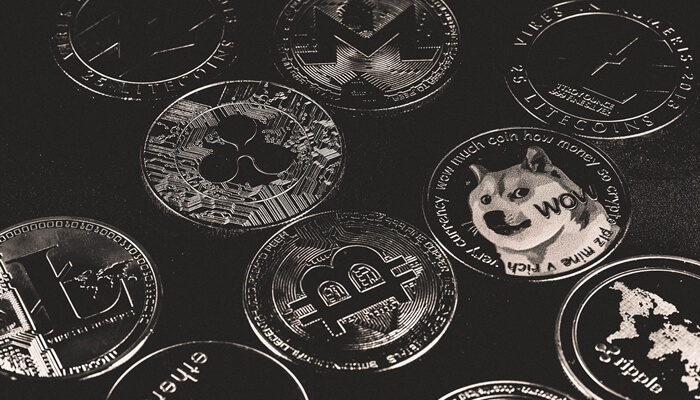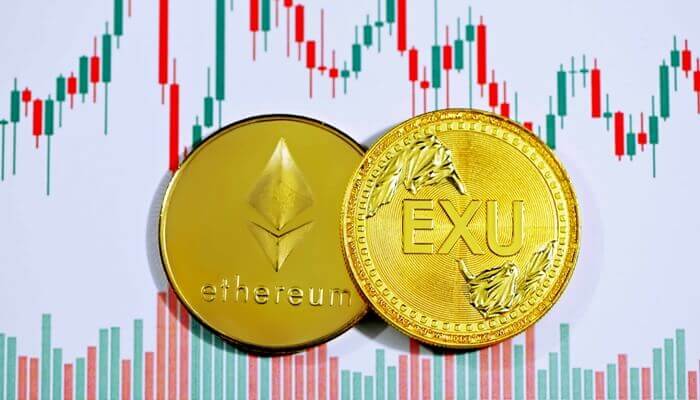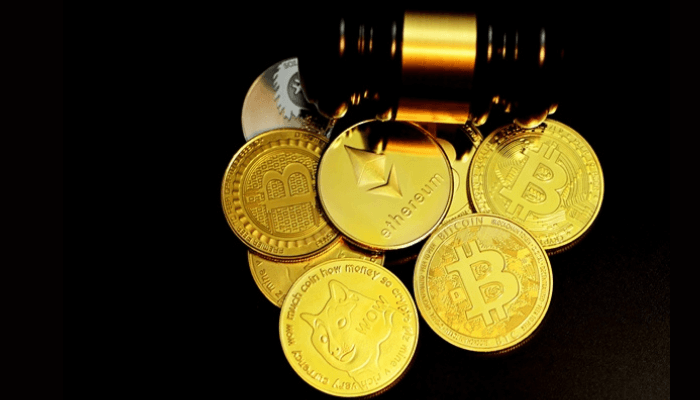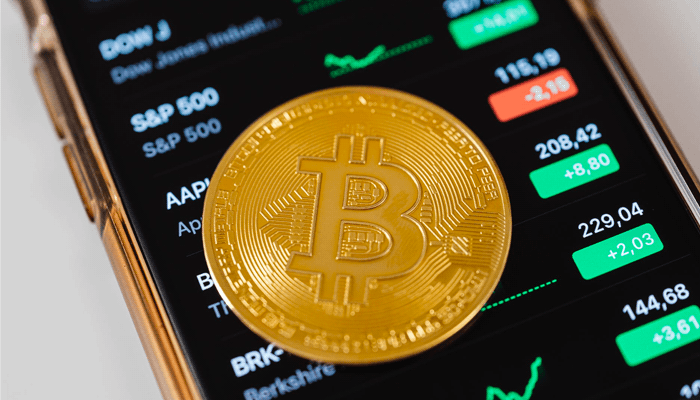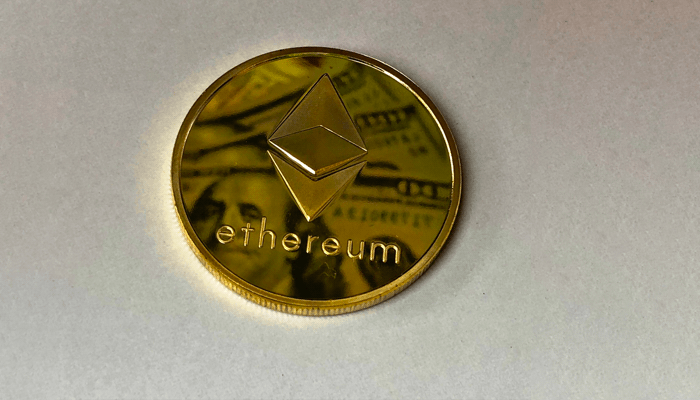The Top 10 Cryptocurrencies by Market Cap in 2021
Did you know there are over 11,000 cryptocurrencies in circulation today? For scale, there are only about 180 fiat currencies in the world.
We’ve all heard the hype around cryptocurrency. But with so many variations, it’s impossible to know where to start. The worst part? You could lose thousands in passive income if you don’t understand crypto soon. But more on that later.
Fortunately, this list compiles the top 10 cryptocurrencies in the world. So strap in for a bite-sized intro to the world of crypto!
What Is Cryptocurrency?
Cryptocurrency is digital money that users trade peer-to-peer. That means no middlemen like banks or governments slowing down the process.
All crypto transactions go into a global blockchain database—that ledger updates across thousands of computers worldwide for security.
Top 10 Cryptocurrencies by Market Capitalization
Market capitalization is the total value of every coin in a cryptocurrency. Ranking by market cap, the top 10 cryptocurrencies are:
- Bitcoin
- Ethereum
- Cardano
- Binance Coin
- Tether
- XRP
- Dogecoin
- USD Coin
- Polkadot
- Solana
Bitcoin ($BTC, $880 billion)
AKA the Godfather of the cryptocurrency world. In 2009, a programmer/programmers built the first decentralized currency, Bitcoin.
Since then, Bitcoin has gone off to inspire countless other cryptocurrencies and off-shoots like Bitcoin Cash and Bitcoin Gold. Bitcoin is also deflationary, so only 21 million Bitcoins will ever exist. For this reason, many investors call Bitcoin’ digital gold’.
Bitcoin is better as a store of value than actual money. Given that Bitcoin transactions are slow (under 5 per second vs. Visa’s 1,700 per second), $BTC is more appropriate for investments than payments.
Bitcoin is also the most well-known cryptocurrency. Changes in Bitcoin’s price reflect the cryptocurrency market overall.
Ethereum ($ETH, $366 billion)
Vitalik Buterin first proposed the Ethereum blockchain in 2013. Ethereum has since multiplied in fame. This is likely due to its role in decentralized finance (DeFi).
The platform is best known for its use of smart contracts. These are self-executing agreements that happen on the blockchain. A smart contract lets parties can execute transactions without a middle man. This reduces costs and boosts speed and reliability.
Ethereum’s native cryptocurrency is Ether, but the blockchain can handle other coins as well. Its ERC-20 protocol has birthed thousands of different currencies. These include Dai ($DAI) and Tether ($USDT), both of which appear on this list. In addition, ERC-20 supports digital collectibles like NFTs.
Cardano ($ADA, $81 billion)
Born in 2017, Cardano is one of the more recent cryptocurrencies on this list. Ethereum co-founder Charles Hoskinson also founded this coin.
Cardano pioneered the proof of stake system for consensus. With proof of stake (PoS), miners validate transactions in proportion to their own cryptocurrency. PoS is more energy-efficient than PoW, which is what Bitcoin and Ethereum currently use. However, Ethereum 2.0 will involve a switch to a staking system.
$ADA also has excellent potential as genuine money. The platform supports more transactions per minute than Etherum and Bitcoin.
Binance Coin ($BNB, $80 billion)
Binance is one of the biggest cryptocurrency exchanges in the world. Since 2017, the company has also launched several other blockchain projects.
Binance Coin was once on the Ethereum blockchain but has since moved to its own chain. This meant a shift from PoS to PoW and the loss of smart contract features.
$BNB mainly serves to pay for transaction fees on the Binance trading platform and smart chain. But since January 2021, its market cap and growth have drawn the interest of cryptocurrency investors.
Tether ($USDT, $65 billion)
Tether is the first stablecoin on this list. It aims to mirror the stability of the U.S. dollar but retain the peer-to-peer nature of a cryptocurrency.
Tether, a firm based in Hong Kong, issues $USDT. The firm pegs the value of each coin to an actual USD they hold in reserve. $USDT comes in handy for crypto investors who want to cash out but don’t want fiat currency just yet. It’s also helpful for global payments since no middlemen or banks get involved.
Tether doesn’t have its own blockchain, running instead on other networks. Bitcoin, Ethereum, and Bitcoin Cash are some examples.
XRP ($XRP, $50 billion)
The XRP Ledger is a blockchain first developed in 2011 and launched in 2012. XRP is its native cryptocurrency. The team behind the project created a company called Ripple. They operate a payments platform called RippleNet. However, the XRP Ledger is independent of Ripple, the company.
Ripple’s financial products use XRP to settle global transactions, making it a popular coin among banks and financial institutions. Its defining feature? XRP is fast and affordable. Impressively, it validates transactions every 5 seconds for less than a cent.
Dogecoin ($DOGE, $35 billion)
If there’s one cryptocurrency as famous as Bitcoin, it’s Dogecoin. Conceived in 2013 as a fork of Litecoin, $DOGE aimed to be a coin for the Internet community. Its mascot, a Shiba Inu, is a viral meme.
Unlike any of the other cryptocurrencies on this list, Dogecoin lacks an explicit purpose. Creator Billy Markus has said it was meant to parody all the other Bitcoin clones of the early 2010s. Despite this, the cryptocurrency has gained traction through public evangelists. Elon Musk and Mark Cuban are just two examples. Many still use $DOGE to support creators in online communities like Reddit.
USD Coin ($USDC, $27 billion)
Much like Tether, USDC is a coin tied to the value of the U.S. dollar. Created by Circle and Coinbase, USD Coin is an ERC-20 token. It allows fiat currency to use crypto applications, like smart contracts.
Each USD Coin is backed by dollars held in reserve or bonds. This makes USDC is a popular option for people new to the world of decentralized finance.
Polkadot ($DOT, $23 billion)
Polkadot’s blockchain unifies separate blockchains into one network. Created by the Web3 Foundation in 2019, the blockchain also employs a PoS system.
The central goal of Polkadot is to build an ecosystem between blockchains that all serve different purposes. They describe themselves as a “blockchain of blockchains”. The $DOT coin has various uses:
- Stakes for the PoS system
- Voting tokens for the community
- Connecting parachains to Polkadot’s network
Solana ($SOL, $22 billion)
The Solana Foundation introduced Solana in 2020, making it the youngest cryptocurrency on this list. Solana’s blockchain network has a unique security method.
It uses a combination of proof-of-history and proof of stake. With PoH, the blockchain can determine when a transaction occurred. In union with PoS, these mechanisms make Solana one of the fastest and cheapest platforms for making transactions.
Solana’s protocols also make it easy to develop decentralized applications. That makes it a strong contender for DeFi’s future.
Cryptocurrency Assets Can Make You Money
Even though every cryptocurrency on this list is unique, they all have one thing in common. They’re the future of finance.
But many people are afraid of investing in crypto because of its volatility. Fortunately, smart investors like Dan Hollings can leverage crypto trading bots to profit off those fluctuations. Curious to know how he did it? Sign up to hear all about The Plan HERE.
Frequently Asked Questions
Which cryptocurrency is best to invest in in 2021?
Many investors see Bitcoin as the best store of value on the market. It has a limited supply, suggesting future gains. However, it’s impossible to predict which cryptocurrency will be the best investment.
What are the ten largest cryptocurrencies?
In order by market cap:
- Bitcoin
- Ethereum
- Cardano
- Binance Coin
- Tether
- XRP
- Dogecoin
- USD Coin
- Polkadot
- Solana
Which is the best cryptocurrency?
Cryptocurrencies specialize in different things. Bitcoin is the best store of value, Ether is the most versatile, and XRP has low transaction fees
